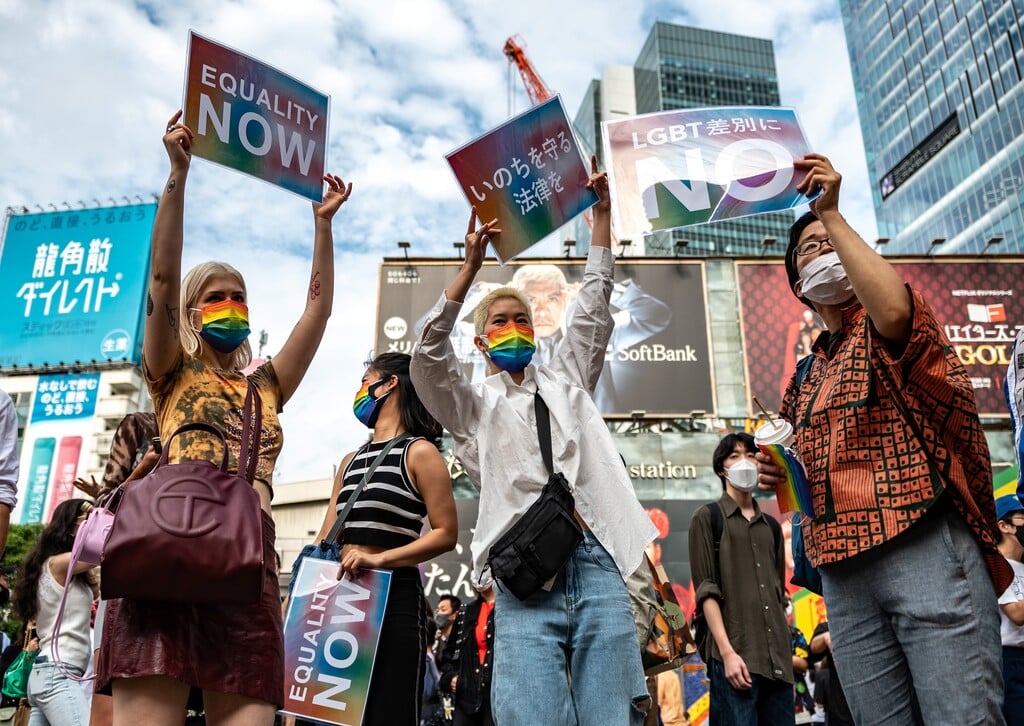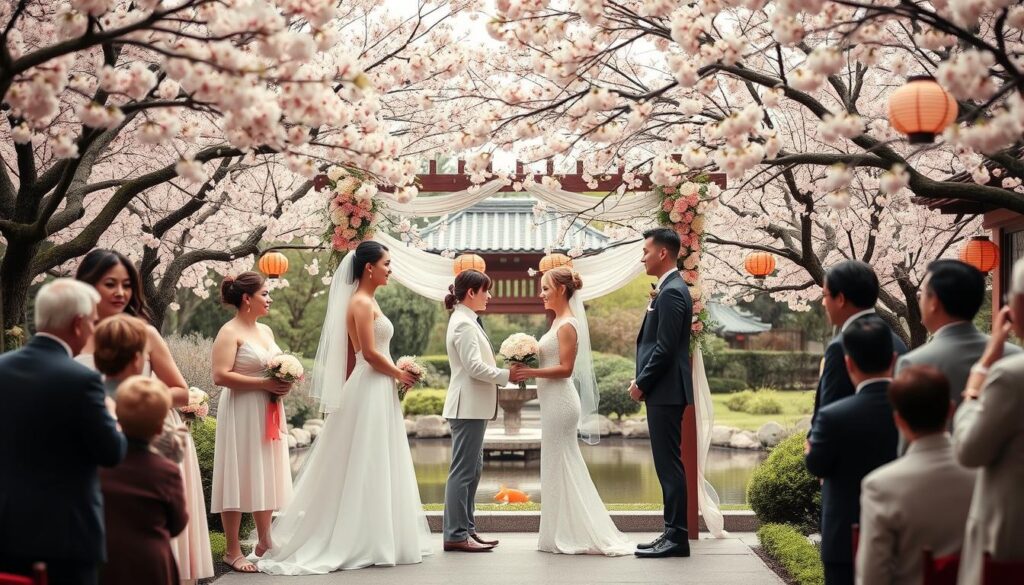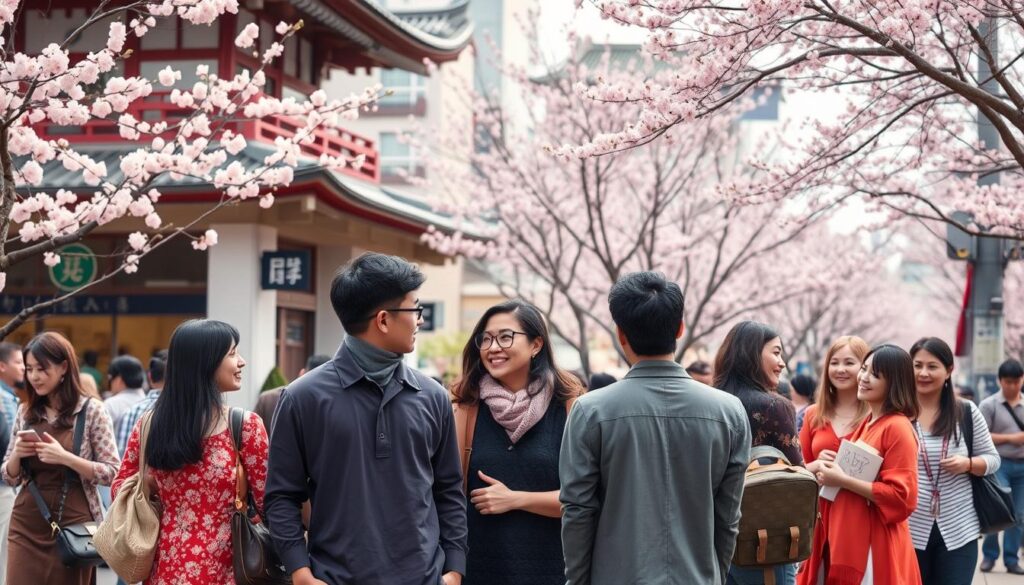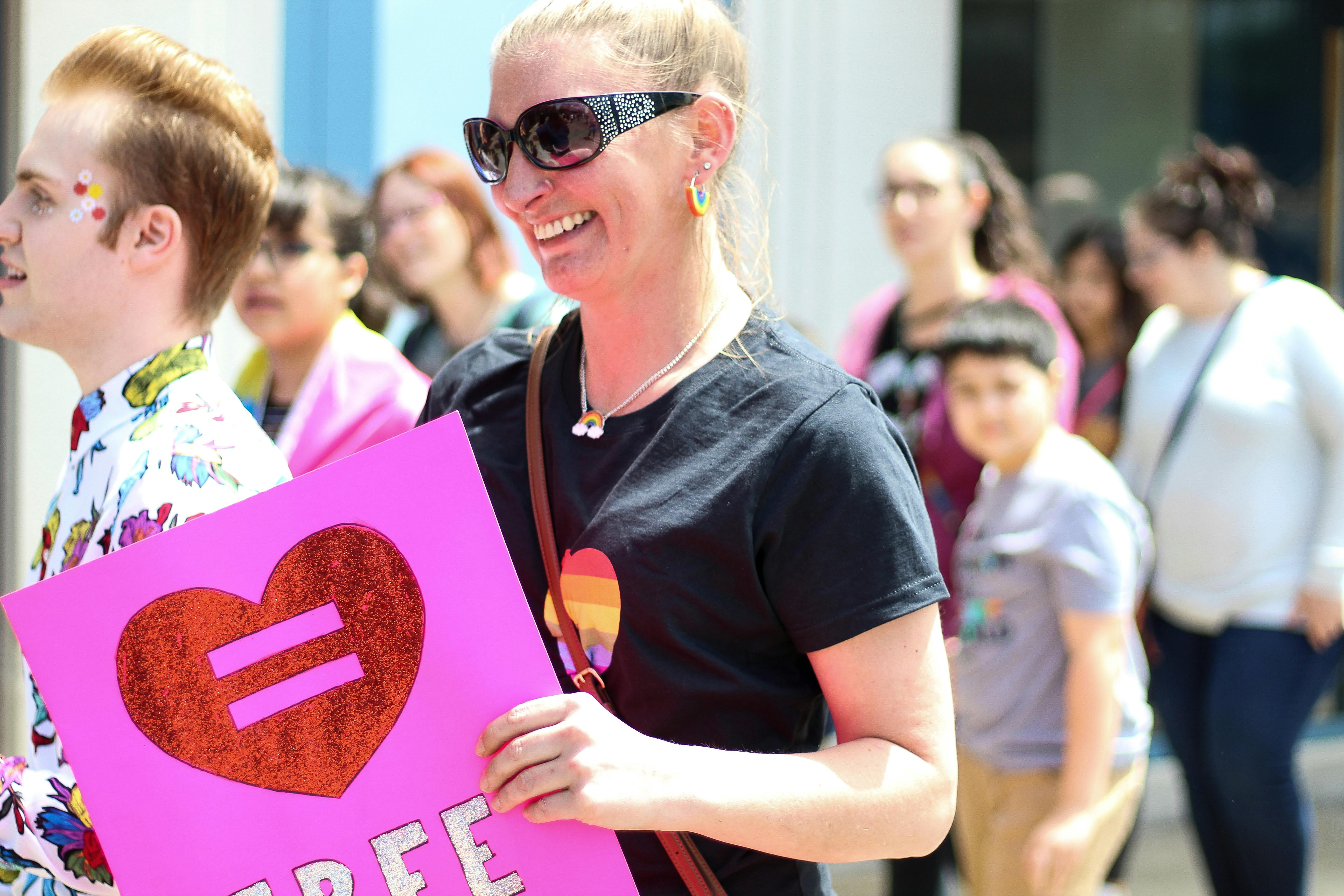Japan, known for its rich culture and unique traditions, remains the only G7 country that doesn’t legally recognize same-sex marriage. While courts across the country have recently ruled the ban unconstitutional, the legal framework still limits marriage to opposite-sex couples. This issue has sparked widespread public interest, with polls showing growing support for marriage equality. Whether you’re a local or someone deeply curious about LGBTQ+ rights in Japan, understanding the current status of same-sex marriage provides valuable insight into a pressing topic that continues to shape modern Japanese society.
The Current Legal Status of Same-Sex Marriage in Japan
Under Japan’s legal framework, marriage is exclusively defined as a union between a man and a woman. Although societal attitudes are gradually shifting, the legal system still poses numerous challenges to recognizing same-sex marriage. This section breaks down the legal barriers, recent court rulings, and constitutional debates shaping the future of marriage equality in Japan.
Japanese Civil Code and Family Register Act
The Japanese Civil Code and Family Register Act are key legal frameworks that currently prevent same-sex couples from marrying. Article 731 of the Civil Code specifies that marriage is only allowed between a man and a woman. The Family Register Act further enforces this, requiring couples to be recorded in a koseki, or family registry, as male and female spouses. These systems reinforce the idea that marriage must conform to traditional gender roles.
Several legal analysts argue that these laws are outdated. They were drafted when LGBTQ+ rights were not part of public discourse, creating a legal gap for same-sex couples today. Despite growing public support for same-sex unions, these rigid structures have yet to be revised to reflect changing societal norms. For more insights into these laws, visit Marriage Equality Japan’s overview.
Court Rulings and Constitutional Challenges
In recent years, Japanese courts have become battlegrounds for LGBTQ+ rights, bringing marriage equality into sharper focus. In March 2021, the Sapporo District Court ruled that Japan’s ban on same-sex marriage violated the Constitution’s Article 14, which guarantees equality under the law. This was a landmark case as it was the first court to declare the ban unconstitutional.
Subsequent rulings have echoed Sapporo’s decision. In 2024, both the Tokyo and Fukuoka High Courts ruled that the refusal to recognize same-sex marriages contravened constitutional principles. These decisions have put significant pressure on the government to reevaluate its stance. While these rulings don’t automatically legalize same-sex marriage, they mark an important step forward. To learn more about these court cases, check out Kyodo News’ coverage of the Fukuoka High Court’s ruling.
The Role of the Constitution in the Debate
The Japanese Constitution, specifically Articles 14 and 24, is central to debates on marriage equality. Article 14 guarantees everyone equality under the law and forbids discrimination based on race, creed, sex, or social status. LGBTQ+ advocates argue that denying same-sex couples the right to marry violates this principle.
Meanwhile, Article 24 states that marriage must be “based only on the mutual consent of both sexes.” The phrase “both sexes” has been a focal point of interpretation. Advocates assert that the Constitution does not explicitly ban same-sex marriage but instead emphasizes mutual consent and equality within partnerships. Critics, however, interpret this phrase as defining marriage strictly between a man and a woman. For a deeper dive into this constitutional aspect, visit the Japanese Constitution Online.
These constitutional debates reflect a broader societal question: Should a law written decades ago dictate modern relationships? As court rulings challenge traditional interpretations, the conversation around marriage equality in Japan has never been more urgent.

Public Opinion and Sociocultural Dynamics
The question “Is gay marriage legal in Japan?” reveals deep complexities within Japanese society. While many citizens rally behind marriage equality, cultural traditions, and political dynamics create significant barriers. This section explores two key components: the growing public support for same-sex marriage and the resistance rooted in political and cultural traditions.
Majority Support for Marriage Equality
Public opinion in Japan strongly favors same-sex marriage, particularly among younger generations. A 2023 survey revealed that 72% of voters support legalizing gay marriage, reflecting an overwhelming desire for change within the population. This percentage is even higher among those in their 20s and 30s, where attitudes toward LGBTQ+ rights are more progressive compared to older generations.
Interestingly, Japan’s younger citizens have grown up in an era of openness. Social media has allowed people to connect across borders, exposing them to global conversations on LGBTQ+ issues. As a result, marriage equality has become less of a “Western idea” and more of a universal human rights issue. Many see it as the next logical step in creating an inclusive society.
A high-profile 2023 study from the Asahi Shimbun also highlighted that only a small minority—18%—actively opposes same-sex marriage. This growing support signals a shift in how Japanese citizens understand modern relationships and equality. However, public opinion alone isn’t enough to guarantee legislative change.

Cultural and Political Resistance
Despite growing public approval, Japan’s political and cultural systems resist changes to the traditional family structure. The most significant opposition comes from the ruling Liberal Democratic Party (LDP), which has historically aligned with conservative values. The LDP argues that marriage equality challenges Japan’s cultural norms, often emphasizing the importance of preserving traditional family roles.
Cultural norms also play a big role. Many argue that Japan’s emphasis on harmony and avoiding conflict makes dramatic social shifts less likely. This mindset fosters a “wait-and-see” attitude among lawmakers, even when public opinion is clearly in favor of action. The powerful influence of religious groups, such as factions connected to the Unification Church, further complicates the situation. Notably, recent efforts to distance politics from religious influences may create opportunities for progress source.
Politically, the LDP faces pressure from two sides. On one hand, young constituents demand action; on the other hand, older, more conservative voters resist change. This tug-of-war creates a stalemate, making it difficult to pass laws recognizing same-sex unions. For more insights into this political dynamic, visit the East Asia Forum’s coverage.
The result? Politicians delay action, using vague promises of “future discussions” while avoiding immediate commitments. This makes the legalization of gay marriage a slow and uphill battle. Without significant political reform, Japan’s legal system may continue to lag behind its public sentiment.

Partnership Certificates: A Partial Solution
Japan has made some progress in recognizing the needs of same-sex couples, but the solutions remain partial at best. One significant step in this direction is the adoption of partnership certificates in various municipalities across the country. While these certificates provide some rights and recognition, they fall far short of what marriage equality advocates are seeking.
What Are Partnership Certificates?
Partnership certificates are agreements issued by local governments in Japan to same-sex couples, acknowledging their relationship. They offer limited legal benefits intended to help couples navigate situations where recognition is crucial, such as during medical emergencies or when applying for public housing. Similar programs are operational in cities like Tokyo and Osaka, plus several other prefectures.
But how exactly do they work? While not legally binding like a marriage certificate, these partnership certificates can:
- Grant hospital visitation rights to a partner.
- Allow discussion and consent on medical procedures.
- Enable couples to apply for joint public housing.
- Offer some level of workplace recognition for spousal benefits.
An important caveat? Many of these benefits are purely symbolic. For example, companies and hospitals aren’t legally required to acknowledge these certificates—it’s at their discretion. This means that while the partnership certificate may help, the lack of enforceable legal weight often leaves couples in limbo. Learn more about partnership certificates here.
Advocates for LGBTQ+ rights often highlight these certificates as a positive step, but emphasize they are just that—a step, rather than a destination. You can think of it as a single bridge over a vast river. Does it help? Sure. But it doesn’t get you to the full destination: full legal rights and recognition.
Comparison to Marriage Rights
The key question many same-sex couples ask is: How do these certificates compare to the rights and protections provided by marriage? The answer is stark—they don’t come close.
Marriage offers an extensive range of legal, social, and financial protections that partnership certificates cannot promise. Consider the following:
- Inheritance Rights: Marriage entitles spouses to automatic inheritance rights. Partnership certificates, however, do not address property distribution upon the death of a partner.
- Tax Benefits: Married couples in Japan can take advantage of tax deductions and exemptions that are 100% unavailable to same-sex couples under partnership certificates.
- Parental Rights: Legal marriage enables adoption rights for couples, solidifying family structures. But for same-sex couples with partnership certificates, there’s no legal path to adopt as co-parents.
- International Recognition: Japanese marriages are recognized globally, allowing married couples certain rights when abroad. Partnership certificates, being domestic and non-binding, hold no such power outside Japan—or even consistently within it.
For LGBTQ+ Japanese citizens, these gaps are glaring. While marriage creates a tight safety net woven with legal protections, partnership certificates barely provide a loose covering. Activists often point out that without marriage equality, same-sex couples are second-class citizens when it comes to legal safeguards. Gains like Tokyo issuing certificates in 2022 are commendable, but the system still leaves much to be desired. Read about Tokyo’s same-sex partnership initiative here.
In short, while partnership certificates are a helpful band-aid, they can’t replace the full framework of rights that marriage provides. The lack of legal parity highlights ongoing inequality, leaving same-sex couples in Japan to navigate a system that offers incomplete solutions to deeply personal matters.
International Perspectives and Pressure
While the question “Is gay marriage legal in Japan?” strikes a personal chord within the country and resonates globally. Japan’s stance on this issue draws significant international attention, from peer countries in the G7 to human rights organizations. These perspectives not only spotlight the issue but also add pressure for change from outside Japan’s borders.
Japan as the Last G7 Nation Without Marriage Equality
Japan is the only G7 member state that has yet to legalize or even formally recognize same-sex marriage. This fact sets the nation apart in a group of democratic, economically advanced nations where LGBTQ+ rights are increasingly seen as a measure of human rights and modernity.
Countries like the United States, Canada, and Germany have not only legalized same-sex marriage but actively promote these rights on the international stage. Even traditionally conservative nations like Italy have some form of legal recognition for same-sex unions. Meanwhile, Japan’s lack of national recognition for same-sex couples, outside of limited local partnership certificates, underscores its isolation within the G7 on this issue.
What’s more, this gap isn’t just symbolic. Japan’s position impacts its ability to lead on global human rights. At events like the 2023 G7 Summit, LGBTQ+ advocacy groups emphasized how Japan’s lack of marriage equality weakened its influence within the group source. Within the international community, such disparities risk portraying Japan as trailing behind its peers rather than leading alongside them.
 Photo by Rosemary Ketchum
Photo by Rosemary Ketchum
This unique position creates dual pressures—domestic advocates push for equality while global peers look at Japan as an outlier. The question isn’t whether Japan will change its laws, but when. After all, societal and global expectations can only remain ignored for so long.
Pressure from the United Nations
Japan has also faced increasing scrutiny from the United Nations, which continues to advocate for reforms in the nation’s civil code. Over the years, UN human rights committees have consistently recommended that Japan take meaningful steps to recognize same-sex marriage as part of fulfilling its obligations under international human rights treaties.
In 2024, the UN Human Rights Committee specifically urged Japan to revise its constitution and civil laws to reflect equality in marriage rights source. These recommendations stem from Japan’s 2016 review, where the UN Committee on the Elimination of Discrimination against Women highlighted glaring gender inequalities and barriers affecting LGBTQ+ communities. Despite incremental progress, such as some municipalities rolling out partnership certificates, the UN has remained outspoken about how far Japan still has to go.
So why the emphasis? For the UN, the issue goes beyond legal semantics—it’s about aligning with global human rights standards. By denying same-sex couples the right to marry, Japan risks isolating itself internationally and undermining its reputation as a country committed to equality and democracy.
While Japan has historically been slow to adopt social reforms due to political resistance and cultural conservatism, ignoring the UN’s calls for action could have wider implications. At a time when the international focus is firmly placed on universal human rights, maintaining the status quo could increasingly alienate Japan from its peers. The issue of “Is gay marriage legal in Japan?” might seem domestic at first glance, but its ripple effects reach far beyond its borders.
Future Outlook for Marriage Equality in Japan
The movement for marriage equality in Japan continues to gain momentum, driven by shifting societal attitudes and relentless advocacy. As the only G7 country yet to fully recognize same-sex marriage, Japan faces increasing domestic and international scrutiny. While the road to equality remains challenging, several indicators suggest change may be on the horizon.
The Role of Younger Generations
Younger generations in Japan are challenging traditional norms, bringing fresh energy and progressive views to the conversation surrounding marriage equality. A significant factor is the influence of globalization—social media, international culture, and exposure to LGBTQ+ rights campaigns worldwide have shaped how young Japanese view these issues.
For many young people in their 20s and 30s, same-sex marriage is not seen as a threat to tradition but rather a fundamental human right. In fact, polls consistently show that younger demographics overwhelmingly support marriage equality. According to recent surveys, over 70% of people under 40 in Japan believe that same-sex couples should have the legal right to marry. This stands in stark contrast to older generations who are often more conservative in their outlook. Source: Japan’s Public Is Ready for Change on LGBTQ Rights
What’s driving this generational divide? Younger people are growing up in a world where diversity is celebrated, whether they watch films with LGBTQ+ characters or follow stories about global pride events on Instagram. For them, marriage equality isn’t a controversial topic—it’s common sense.
In addition to changing mindsets, younger generations are active participants in advocacy. From attending pride marches to signing petitions, they are vocal about their desire for a more inclusive society. Their involvement doesn’t only bring visibility to the issue but also pressures lawmakers to act. Could this surge in activism from younger citizens finally tip the scales? Time will tell, but their role in shaping the future can’t be underestimated.
Legal and Political Milestones to Watch
The pathway to achieving marriage equality in Japan hinges on several key legal cases and political shifts. Over the last few years, court rulings have set the stage for significant change. Notable decisions, such as the 2021 Sapporo District Court ruling that deemed the ban on same-sex marriage unconstitutional, have directly challenged existing laws. These landmark rulings have laid a legal foundation for future cases, which could further push the government toward reform. Read more about these pivotal cases here.
Political developments also play a critical role. The ruling Liberal Democratic Party (LDP), known for its conservative stance, has been a significant roadblock. However, rising public support and pressure from opposition parties, as well as international allies, are forcing the LDP to reconsider its position. In late 2024, the Tokyo High Court delivered another ruling in favor of marriage equality, reigniting debates within parliament. Source: Momentum for Marriage Equality Grows with Tokyo High Court Ruling.
External events also play a role. The role of Japan’s next Prime Minister will be pivotal. As international conferences and human rights groups continue to spotlight the issue, Japan’s leadership will be under immense pressure to keep pace with its global peers. With an upcoming general election and increased activism from the LGBTQ+ community, 2025 could be a turning point. Learn about the political dynamics potentially influencing this topic here.
In short, the intersection of legal precedents and political action will likely determine the future of marriage equality in Japan. While obstacles remain, the growing support among citizens—particularly younger generations—signals hope for meaningful change.
Conclusion
Same-sex marriage remains legally unrecognized in Japan, with marriage laws still restricted to opposite-sex couples. However, consistent court rulings declaring the ban unconstitutional highlight a growing push for change. Public opinion strongly supports marriage equality, especially among younger generations, signaling potential for future progress.
The legal and political landscape in Japan is evolving, but systemic barriers persist. Staying informed and advocating for equal rights are crucial steps toward achieving a more inclusive society. Will Japan join its fellow G7 countries in embracing marriage equality? Only time will tell, but the momentum for change is undeniable.


